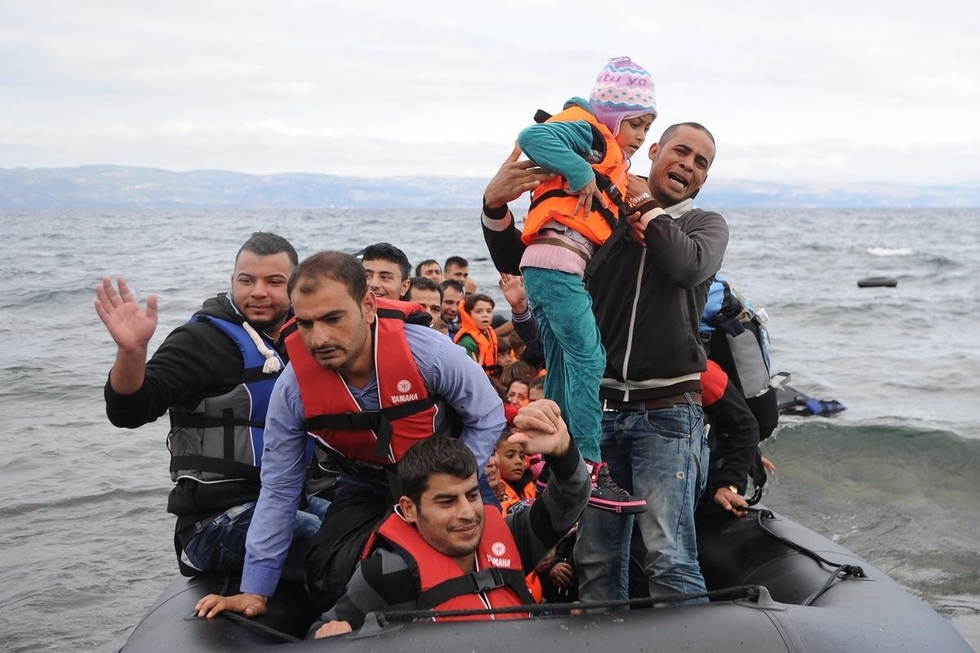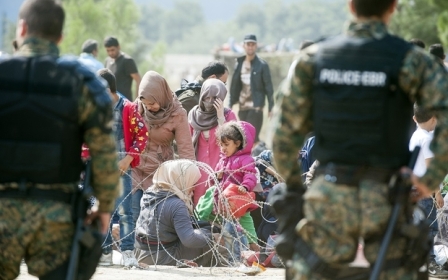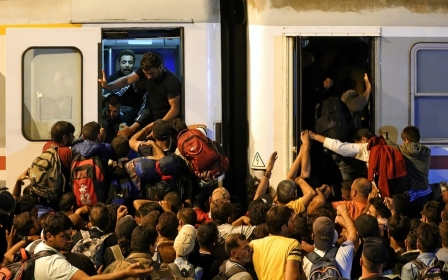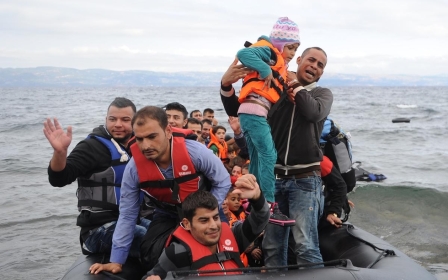Over 1,800 migrants rescued from six boats adrift off Libya

Over 1,800 migrants were rescued on Monday from six vessels found adrift in the Mediterranean off the coast of Libya, Italy's coastguard said.
A total of 1,830 people were brought ashore in six different operations to save passengers in four stricken boats and two rubber dinghies, the coastguard said.
Three Italian vessels and one ship each from Britain and Ireland, which are taking part in the EU Navfor Med mission, were involved in the rescue effort.
Most of those setting out from Libya are sub-Saharan Africans, with Turkey being the main launchpad for crossings by people fleeing conflicts and misery in the Middle East and Asia.
From Wednesday onward, ships operating under the aegis of EU Navfor Med will have new powers to tackle the people smugglers who pack migrants and refugees into overcrowded boats.
Members of the force will have the right to board, search, seize and divert vessels found in international waters that are suspected of being used for smuggling.
World opinion has varied regarding the refugee crisis. In the United States, Republican US presidential frontrunner Donald Trump said that if elected, all Syrian refugees resettled in the United States would be deported. Other US presidential candidates such Ted Cruz, who according to the Associate Press said that the Obama administration's plan to accept about 10,000 Syrian refugees is "nothing short of crazy," warned that allowing Syrian Muslims into the country was the "height of foolishness".
Religious leaders as well as political leaders around the world, from the United States to Bulgaria, Poland and Hungary have expressed similar sentiments. The Orthodox Church in Bulgaria recently referred to the influx of refugees as “an invasion”.
Over half a million migrants and refugees have landed on Europe's shores so far this year, according to the UN refugee agency. Some 2,980 people have perished or disappeared trying to make the crossing.
Middle East Eye propose une couverture et une analyse indépendantes et incomparables du Moyen-Orient, de l’Afrique du Nord et d’autres régions du monde. Pour en savoir plus sur la reprise de ce contenu et les frais qui s’appliquent, veuillez remplir ce formulaire [en anglais]. Pour en savoir plus sur MEE, cliquez ici [en anglais].




